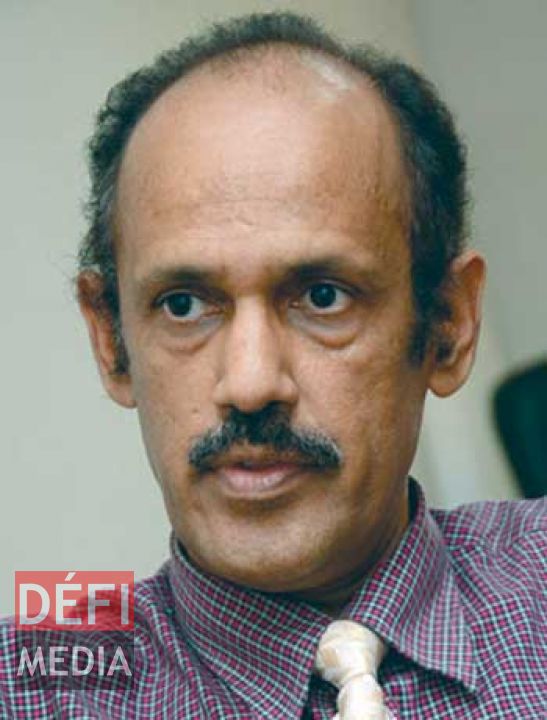
In 2008, reforms were brought to labour laws, which led to the enactment of Employment Relations Act and Employment Rights Act. The gist of these laws was to usher in greater flexibility in the labour markets and reduce government intervention in employment relations.
Former president of Mauritius Employers’ Federation (known as Business Mauritius now) Azad Jeetun reveals that to a certain extent, those laws brought about some flexibility in restructuring of enterprises and in the recruitment and dismissal of workers. An employer could dismiss a worker by giving 30 days notice and justify same on restructuring.
He explains that lay offs were made easier since workers could join the workfare programme which was financed by employers’ contributions and benefits from re-skilling programmes. “To what extent the workfare programme has been a successful experiment is a debatable point. There should be more tailor-made programmes to upgrade the skills of workers.”
The new legislations were also meant to promote collective bargaining but this has had limited impact, he said. The reason: We have not developed a culture of negotiations and collective bargaining in good faith among social partners. This has not happened also because the institutions that intervene in fixing wages and conditions of employment continue to operate under the old system.
“Any new Minister of Labour is happy to announce the review of Remuneration Orders which is politically popular, thereby perpetuating government interference in labour markets. This does not leave much scope for collective bargaining.”
Except for the laying off of workers, he says, our labour legislations have always protected workers. They are very prescriptive regarding conditions of employment to which employers have to abide and which have an impact on labour costs and productivity.
Regarding job security and productivity, he replies: “The nature of jobs is constantly changing. Some jobs disappear and new ones emerge. New technology may be introduced which requires workers and employers to adapt for the business to survive. Jobs require new skills and there is a need for permanent learning, training and retraining. The labour market requires the inculcation of new skills and it is in the interest of workers to continually upgrade their skills.”
He further adds “enterprises have to be productive and competitive and workers have to adapt to this reality. It is a question of survival in a globalised environment. The employer has to ensure that he can produce a commodity at a competitive cost. It is therefore essential for workers to be productive and efficient. Otherwise, not only there will be no job security but the enterprise itself might also have to close down.”
[[{"type":"media","view_mode":"media_large","fid":"15917","attributes":{"class":"media-image wp-image-26872 alignleft","typeof":"foaf:Image","style":"","width":"200","height":"263","alt":"Pradeep Dursun"}}]]Pradeep Dursun: “Job security will enhance worker commitment”
Chief Operating Officer of Business Mauritius, Pradeep Dursun explains that evidence from many countries for example, Ireland, New Zealand, Japan, Costa Rica, Vietnam show that flexibility can help to build resilience in the economy and it can be very helpful in times of economic crisis, as this allows a quicker recovery back on the path of economic growth. Flexibility in labour markets is usually accompanied by social protection for workers. “In Mauritius, we do not have a totally flexible labour market. Some labour market institutions are still quite prescriptive and rigid in their functioning. Labour mobility and flexible work practices are not very much pronounced due to an inappropriate framework. A flexible labour market allows employees to up-skill, re-skill and respond to changes in skills demands. Employees are also better prepared for restructuring and social protection systems accompany workers who may be out of the labour market temporarily or permanently.” Concerning job security, he says: “For many, it is understood as a guarantee for life-time employment. The notion of performance and obligations to work diligently, which are linked to job security, are absent for some people. It is about how the job remains functional, relevant and adapted to contexts where markets change. Job security will enhance worker commitment in general.”[[{"type":"media","view_mode":"media_large","fid":"15918","attributes":{"class":"media-image wp-image-26873 alignleft","typeof":"foaf:Image","style":"","width":"201","height":"262","alt":"Dev Ramano"}}]]Dev Ramano: “Workers are being treated unjustly”
Lawyer Dev Ramano claims that workers have seen their rights sidelined. “There has been much change in labour laws. For example, an employer had to give three months advance notice to sack an employee. Now, it stands at only one month. It is hard for a worker to reorganise himself.” Years ago, in cases of unjustified dismissal, a worker had the right to claim for a normal rate or cumulative rate of compensation. “But today, there is no normal rate. There is zero or cumulative compensation. Another example is the phasing out of the Termination of Contract Service Board (TCSB).” The lawyers explains the inner workings of the TCSB. This agency used to deal with economic redundancies. Whenever a company’s finances were under strain, it sent a letter to the Labour Minister. The TCSB, which was responsible for these cases, would then call upon the workers, employees, lawyers and trade union. If employees had their grounds then they would automatically receive 15 days compensation per year of service plus notice. If an employee has no ground, then he/she would receive three months compensation per year of service. “However, it is no more the case. Today, if a company faces financial troubles, it only needs to inform the Ministry of Labour through a letter,” says Dev Ramano. “Workers are being treated unjustly. There are unjustified terminations. It is an astounding regression.”[[{"type":"media","view_mode":"media_large","fid":"15919","attributes":{"class":"media-image wp-image-26874 alignleft","typeof":"foaf:Image","style":"","width":"211","height":"231","alt":"Ashok Subron"}}]]Ashok Subron: “There rights have been baffled”
Trade Unionist Ashok Subron confides that there are not enough laws ensuring the protection of workers. According to him, long ago, Mauritian workers fought for their rights despite the opposition they faced from capitalists. “With the current legislation, redundancies have been made easier. Workers are suffering with the new amendments in the Employment Right Act and the National Pension Act. The retirement age has been increased to 65 years. It is a regression.” Ashok Subron believes that the rights of workers have been baffled. “The right to unionise and right to strike are spelled out in our Constitution. It a right workers have.” Regarding the introduction of a minimum wage, as pointed by the government before the last general elections, he said the proposal made in the National Assembly does not correspond to the electoral promises.Precarious employment
[[{"type":"media","view_mode":"media_large","fid":"15920","attributes":{"class":"media-image wp-image-26875 alignleft","typeof":"foaf:Image","style":"","width":"221","height":"323","alt":"Reaz Chuttoo"}}]]Reaz Chuttoo: “The situation is worsening”
According to trade unionist Reaz Chuttoo, from the Confederation of Private Sector Employees (CTSP) the labour laws are not only promoting precarious employment but making matters worst. “Under the previous government, we had the Air Mate/Air Mauritius case. The present government is doing the same. We have a concrete example with the Central Electricity Board (CEB) which is employing people on monthly contracts. As the contracts are renewed monthly, people have no job security,” he says. Regarding the National Wage Consultative Council Bill, which has been introduced to pave the way for a national minimum wage, Reaz Chuttoo argues that it will worsen the situation as employees will be paid per hour. “This can pave the way to situations, whereby employers can force their employees to complete their work within five hours instead of eight hours. This will thus lead to more work pressure while employers will pay them less,” he explains. Precarious employment is not only on the rise but is increasingly affecting women, according to the trade unionist. “More and more women are getting trapped in precarious employment.” Reaz Chuttoo claims that from a trade union point of view, there is no other recourse than to oppose this new legislation. “We must undertake a silent revolution. Trade unions must denounce the government who is doing nothing to enhance employees’ situation and life. On the contrary, they are adding insult to injury.” Regarding the review of Remuneration Orders, Reaz Chuttoo highlights that there are 30 of them but 15 have not been reviewed since 30 years. “For example, we have the Salt and Tea industries and the Manufacturing sector. However, 14 of the remuneration orders have been reviewed by the NRB in 2013. The proposals, which were issued since the beginning of this year, have however not yet been released by the Minister.” Reaz Chuttoo denounces that around 100,000 persons in Mauritius are still being paid a basic salary of Rs 5,000 per month.[[{"type":"media","view_mode":"media_large","fid":"15921","attributes":{"class":"media-image wp-image-26877 alignleft","typeof":"foaf:Image","style":"","width":"230","height":"294","alt":"Manish Bundhun \u2013 Chief Human Resource Executive at Rogers"}}]]Manish Bundhun – Chief Human Resource. Executive at Rogers: “There is more complexity in the workplace”
According to the Chief Human Resource Executive of Rogers Group, there has been an evolution in the behaviour of employees over the past few years. “There is more complexity in the workplace as various generations are now working together. We also have generation gaps and managing this is quite complex.” Today, four different generations are working together. Implying four differ ent cultures, visions and opinions. “We have to come up with four different ways to motivate them,” he says. What can be said about employers’ expectations from employees and vice versa? Manish Bundhun states that it is a dynamic relation and equation. “Employees expect an equitable and interesting remuneration along with benefits including recognition. Employees also look for opportunities to develop their career. On the other side, employers expect employees to be self-motivated and engaged. They also seek decision makers. Employers expect performance oriented people who will bring results in terms of profitability and productivity.” The HR professional does not believe that people are less dedicated to their jobs than before. “There is more movement, especially with young employees. They are more career-oriented. For example, those who have white-collar jobs will move to a next post every three years.” And what are conditions required for a worker to be more productive? According to Manish Bundhun there is a whole experience which must be created. “We need to give them the necessary tools, namely in terms of competence, work environment, trust and communication. This will definitely lead to more productivity,” he explains. On a question of an increase in the number of industrial disputes, the Chief Human Resource Executive finds that it is rather on the decline as compared to before. “I believe this is down to legislations promoting collective bargaining. This gives way to collaboration.”National Wage Consultative Council Paving the way for the minimum wage
The National Wage Consultative Council Bill was presented on Tuesday at the National Assembly. The aim of the legislation is to introduce a national minimum wage in the private and public sectors and the payment of additional remuneration to offset any increase in the cost of living every year. The Council will be responsible for the evaluation of the effect of the introduction of a national minimum wage, particularly on pay structures and pay differentials, employment, inflation, competitiveness, the cost of doing business, low paying sectors, small firms and groups of workers, including young workers, women, young persons and persons with disabilities. The national minimum wage will be calculated on an hourly rate, according to the Bill. The amount will be equivalent to a proportion of the domestic median wage of the preceding year for the lowest paid workers. Also, there will be a lower national minimum wage for young persons; and young workers on accredited training, apprenticeship or probation, having no corresponding job experience, skills and competencies. How would the Council function? Among other things, it will have to collect and analyse data and information on wages and related matters; conduct research on wages and socio-economic indicators; and submit a report on the impact of the national minimum wage within 12 months of its introduction. This report will have to be followed by subsequent ones every year. Once it has submitted its recommendation, the National Wage Consultative Council, will have to review the minimum wage in 2020. Thereafter, the quantum will be reviewed every five years. Any person who flouts the law, is liable to a fine not exceeding Rs 50,000. If an employer is convicted of paying a worker below the prescribed national minimum wage or additional remuneration, the Industrial Court may order the employer to pay to the worker the difference between the amount which ought to have been paid. On Tuesday, the Confederation of Private Sector Employees (known as CTSP) held a protest against the Bill in front of the National Assembly. “We appeal to the government to amend the Bill. It is inconceivable that the minimum wage will be paid per hour,” said Reaz Chuttoo, spokesman of the CTSP. On his part, trade unionist Ashok Subron considers that the Bill is simply a ‘sabotage’. “The Bill is the stranglehold of the World Bank which is sabotaging the minimum wage in Mauritius,” he said.
Notre service WhatsApp. Vous êtes témoins d`un événement d`actualité ou d`une scène insolite? Envoyez-nous vos photos ou vidéos sur le 5 259 82 00 !





























